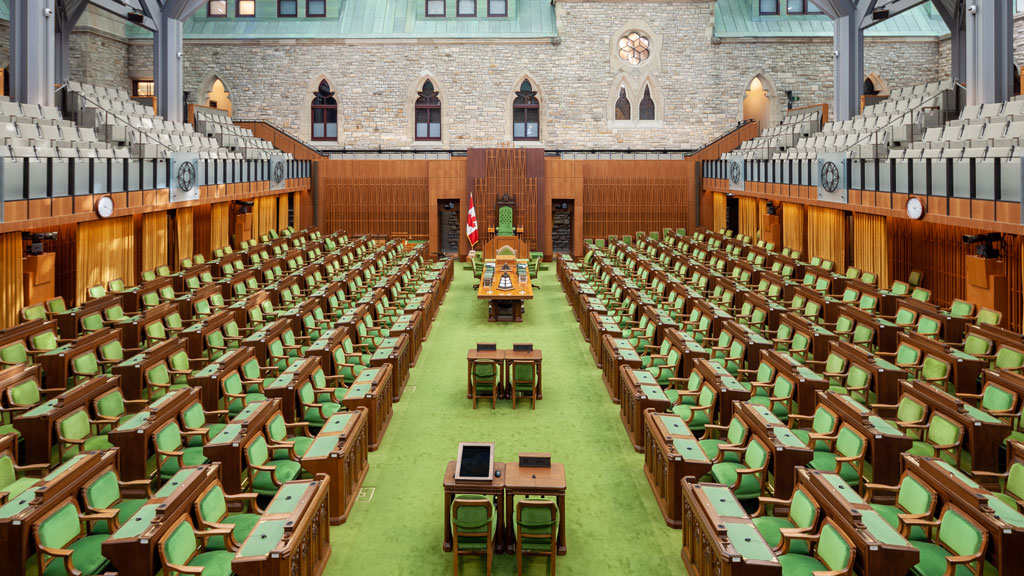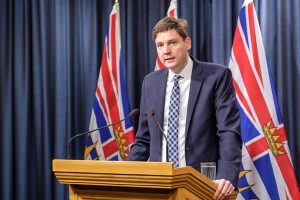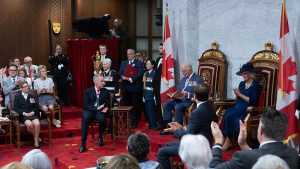Canadians are going to the polls this fall to choose who will lead the country. Parties have five weeks to lay out their vision.
Leaders in Western Canada’s construction sector explained the issues that matter to them and what they hope is addressed by the candidates.
Chris Atchison, president of the BC Construction Association (BCCA), said prompt payment legislation is a top priority for the province and wants to know each candidate’s stance on it.
“The B.C. government continues to drag its heels despite solidarity across the industry,” said Atchison. “Do you believe this issue calls for a national solution or a provincial one? If national, how do you plan to make it happen quickly to support contractors leading Canada’s economic recovery?”
Atchison said developing a skilled workforce is also critical and wants to know how candidates plan to modernize Canada’s apprenticeship system without creating more barriers to entry and completion.
“Many candidates miss the point that in order to be an apprentice a worker must already have a job,” he said. “You can’t enrol for apprenticeship the way you enrol for post-secondary education. How does Canada attract more entrants to the construction industry and how do we keep them? We have the jobs but thousands remain unfilled. We need answers that go beyond funding to real structural improvements.”
Lastly, the BCCA wants to know how candidates plan to make smart investments in infrastructure. Atchison explained while there is a great deal of emphasis on green building and infrastructure, just in B.C. alone residents face over 50 natural hazards. Climate change is making conditions worse.
“We need to build buildings that do not just preserve life during an earthquake but that are built to be operable within a few days or weeks,” said Atchison. “Does the candidate accept that green rubble is still just rubble, and without a crisis-recovery mindset, investments in infrastructure are likely to create more risk and cost? If not, why not? If so, what is their plan to bring Canada into a leadership position in regard to building innovation?”
Chris Gardner, president of the Independent Contractors and Businesses Association in B.C., wants to know how candidates are going to ensure Canada is able to compete internationally.
“Our competitiveness has been slipping,” said Gardner, noting Canada ranks 63rd globally in processing construction permits.
He explained this is one of the root causes of why many major urban centres across the country are facing housing affordability issues.
“In Vancouver it can take up to four years to approve a project. In many cases that is longer than it even takes to build it,” he said, adding candidates must explain how they intend to adjust the regulatory or tax systems to improve economic competitiveness.
Gardner said worker shortages are impacting the country’s entire construction sector and action must be taken.
“We are going over a demographic cliff,” said Gardner. “The only relief valve is immigration. We simply don’t have enough people entering the workforce and it is a threat to our long-term competitiveness.”
Gardner explained even if Canadians began entering the trades at higher levels, the educational infrastructure isn’t there to train them. He said some trades in B.C., like glaziers or ironworkers, only have one place to train.
In Alberta there were similar concerns.
Bill Black, president of the Calgary Construction Association, explained the province needs investment.
“In the west we obviously need the economy to pick up and a healthier energy industry would be part of that,” said Black. “We need private investment and ongoing diversification of the economy.”
He added the association would like to see infrastructure spending continue, red tape reduced and less procurement hurdles on public work.
Black also wanted to see workforce issues addressed.
“Employers need to be able to find labour and this is a growing concern along with rising material pricing and supply chain instability,” he said.
The BC Building Trades tweeted a link to a Canada’s Building Trades Unions statement that is looking for support for Canadians travelling for work, implementing a skilled trades workforce mobility tax deduction; ensuring construction workers in the energy sector are not left behind in the transition to a greener economy; investments in green energy infrastructure; and improving government programs to better assist apprentices and underrepresented groups through applying community benefits agreements on federally procured infrastructure projects.
Election day is set for Sept. 20.
Follow the author on Twitter @RussellReports.











Recent Comments
comments for this post are closed